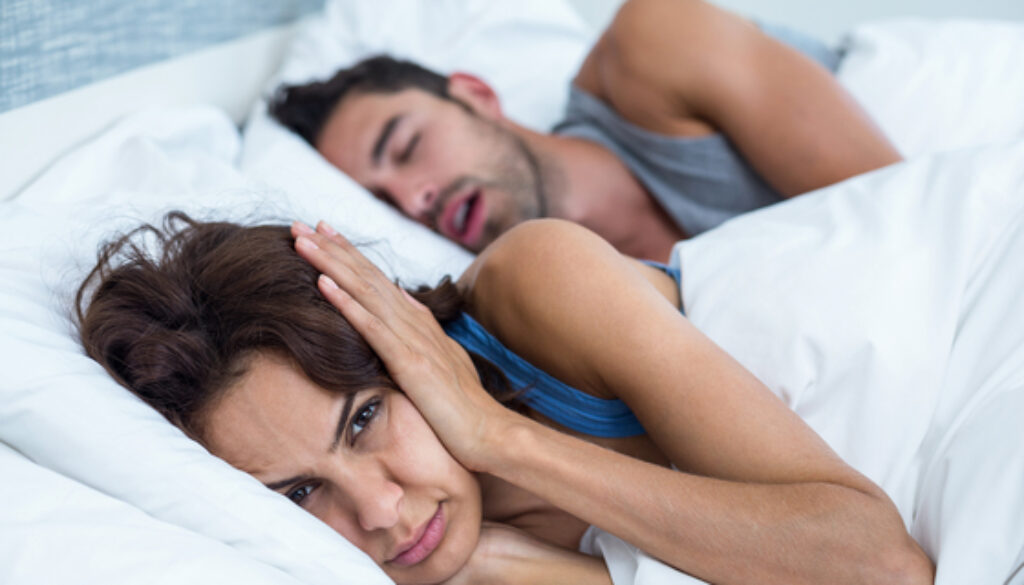How to Stop Snoring
When you say you’ve been “sawing logs,” it makes snoring sound almost quaint. In reality, there’s nothing remotely charming about snoring—particularly for spouses who have to share a bed with a chronic snorer. If you’re the guilty party, you’re probably embarrassed to be the cause of your partner’s bedtime tossing and turning.
But there’s much more to snoring than losing some hours of “zzzzz’s.”
It’s is often a sign of sleep apnea, a disorder that contributes to serious health problems such as heart disease, stroke and diabetes. When it comes to snoring, what you don’t know can hurt you.
Who is most likely to snore?
Snoring is more common in men than women, and about half of all Americans snore at some point in their lives. Although men are less likely to snore after they turn 70, about 40 percent of them are habitual snorers. Twenty-four percent of women snore.
You’re also more likely to snore if :
- You sleep on your back
- You use alcohol or other depressants
- You’re congested from allergies
- You have a cold
- You have a structural problem with your nose or throat
- You’re obese. Being overweight also makes it difficult to stop snoring because you may have extra tissue in the back of your throat, which narrows your airway.
What happens when you snore?
Snoring is caused when excess tissue blocks the airway. The airway then collapses when normal muscle relaxation occurs.
Sleep Apnea
Did you know that those with sleep apnea may stop breathing for several seconds at a time, hundreds of times each night? Snoring is one of the major symptoms, though not everyone who snores will develop sleep apnea.
Other signs of sleep apnea include:
- Mood swings
- Depression
- Morning headaches
- Memory problems
- Irritability
- Frequent nighttime urination
- Increased daytime drowsiness
If you’re not sure if you have sleep apnea, you can take this quiz and discuss the results with your ENT.
By taking a closer look at the most common causes of snoring, the doctors at Raleigh Capitol Ear, Nose and Throat are in a unique position to help you, particularly if you have a structural problem with your mouth or nose.
Time to stop snoring!
There are several treatments available for sleep apnea.
CPAP MACHINES
These machines provide continuous airway pressure through a mask that fits over your nose and mouth. They provide oxygen to keep your airways open while you’re sleeping. Remember: to be effective, these must be tailored to fit you.
LIFESTYLE CHANGES
If you’re overweight, smoke, or drink alcohol, you’re more likely to have sleep apnea. While regular exercise and nutritious diet won’t necessarily get rid of your sleep apnea, they have a lot of other benefits.
MOUTH GUARDS
By repositioning your tongue and jaw, mouth guards open up your airway so you can breathe without obstruction.
Treating Structural Problems with Your Nose and Mouth
Could it be that you need surgery to alleviate your snoring? It’s possible, particularly if you have problems with your mouth and nose anatomy. For example:
- Large tonsils
- Extra tissue in the back of the throat
- Nasal obstruction due to:
Deviated septum
Polyps [link to earlier article]
Nasal allergies
- An elongated uvula (the tissue hanging in the back of your throat)
Where to get help
Your local ENT is in a perfect position to help you alleviate snoring. If you have any structural abnormalities with your nose, he or she can correct it, and some of these procedures can be completed in-office.
More information can be found through the American Sleep Apnea Association.




